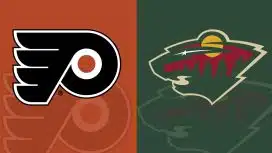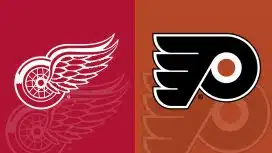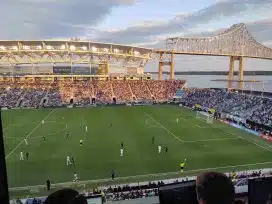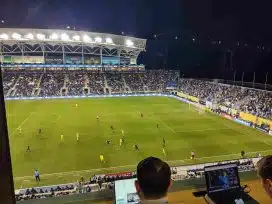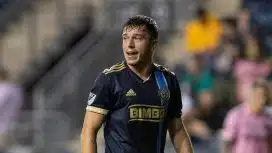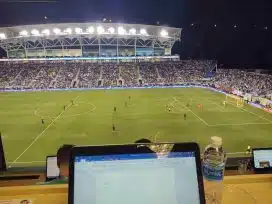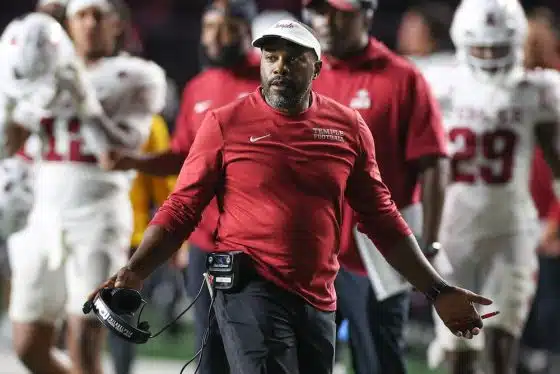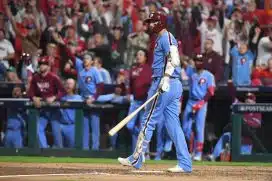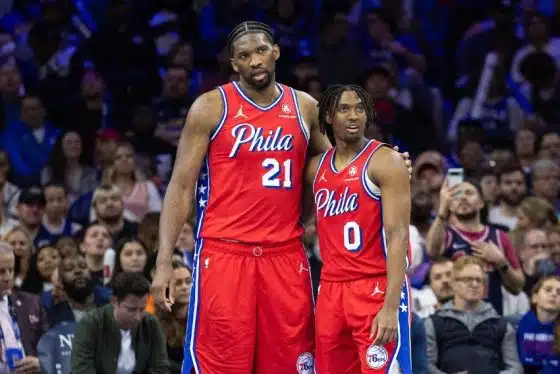Uncategorized
Low Risk For Philadelphia Eagles, Others To Trade Up
Philadelphia Eagles head coach Chip Kelly has gone on record saying the Eagles will not "mortgage" their future to trade up in the NFL Draft.
That's good. That makes sense.
There is also no clear definition of what it means to "mortgage" the future. And there is no evidence to suggest dumping a bunch of draft picks hurts one team or helps another.
Draft picks have value, but they're like lottery tickets. If you gather a bunch of tickets, there is a chance – albeit a small one – that you'll have a jackpot. Some will be "winners" of varying degrees. Most will be losers.
The same goes for draft selections. There is safety in numbers. Theoretically, the more picks you have, the more players you get, the more chances you have that, when you get them in your uniform and scratch them up, they'll be a winner. The rest will be a mixed bag of serviceable players and guys who are – sorry – busts.
Take a look back at the 2012 NFL Draft. Andrew Luck went No. 1 overall and has provided dividends to the Indianapolis Colts. But he, along with the other 31 players selected in the first round, have combined for just 10 Pro Bowl appearances. Nine of the 32 players have started for their respective teams in one season or less. Read that again. A third of these guys haven't even been NFL starters. A third of the first-round picks.
Which all brings us back to Oregon quarterback Marcus Mariota. We all know he is Chip's guy. Chip knows he is Chip's guy. The other 31 general managers know this, too, which puts Chip in an awful negotiating position.
And none of that matters. There is no deal too risky for the Philadelphia Eagles – or any team, for that matter – to make in moving up for Mariota. As we've demonstrated, there are no guarantees in the draft. Cashing in your lottery tickets for one that you believe is the winner is the smart move.
The two most recent cases of this that I recall came in 2012 and 1999, when teams decided to "mortgage" their future for Robert Griffin III and Ricky Williams, respectively.
In 2012, the Washington Redskins traded a boatload of picks – including three No. 1s – to the St. Louis Rams for the chance to add RG3. Griffin led Washington to a 10-6 record and a playoff appearance in his rookie season. Washington has finished 3-13 and 4-12 since as Griffin has battled injuries.
The Rams turned the trade into eight players: guard Rokevious Watkins, corner Janoris Jenkins, tackle Michael Brockers, running backs Isaiah Pead and Zac Stacy, wide receiver Stedman Bailey, linebacker Alex Ogletree and offensive tackle Greg Robinson.
Of them, Watkins was out of football after two seasons, Jenkins has seven interceptions in three seasons and is considered a solid No. 2 corner, Brockers is a legitimate defensive lineman with 11.5 career sacks and 82 tackles, Pead likely won't be a Ram in 2015, Stacy lost his starting job and will fight for a roster spot this season, Bailey has 47 career catches in two seasons, Ogletree is a legitimate player and Robinson started 12 games as a rookie.
Two very good players (Brockers and Ogletree), one solid player (Jenkins) and the jury remains out on Robinson.
Oh, and the Rams have gone 7-8-1, 7-9 and, most recently, 6-10.
At least Washington made the playoffs.
In 1999, Mike Ditka and the Saints famously traded their entire allotment of draft picks – plus two in the following season – to get Ricky Williams.
We all know Williams had his issues, but he was also played for some awful teams and still managed to put up some very good numbers. After rushing for 884 yards as a rookie for the 3-13 Saints (a season that got Ditka fired), Williams ran for 1,000 and 1,245 yards before being shipped off to Miami. There – while still playing for bad teams – he ran for 1,853 yards in 2002 and 1,372 yards in 2003.
Yes, I'm glad the Eagles elected to draft Donovan McNabb that season, but give Ricky Williams his due.
The team on the receiving end of that draft day trade was, ironically, Washington, which through a variety of trades turned those eight picks into four players: Champ Bailey, Derek Smith (not the good one), LaVar Arrington and Lloyd Harrison. Bailey is obviously a stud, but played only five seasons for the Redskins, during which Washington made the playoffs just once. Arrington played seven seasons and was a three-time Pro Bowl selection. The other two players were busts.
Hardly franchise-altering talent considering the Redskins have had four winning seasons total since 1999.
The point here is simple – these massive draft pick trades, the idea that you "mortgage" the future, it's ridiculous. There is no evidence to support that conclusion. The Washington teams of the early 2000s went nowhere. The Rams have been and remain mediocre.
Now, you can also easily argue that things didn't work out so well for New Orleans or the Redskins, that those players weren't franchise-altering talent. It's a fair point, though I'd disagree somewhat. Williams did show plenty of skill, but his teams were dreadful. They didn't even make the playoffs when he topped 1,800 for the Dolphins. And as for RG3, who has had no continuity in coaching while playing for a franchise that has gambled with his health, his grade is still incomplete.
If you're worried about the Eagles giving up so much that Tennessee becomes an instant Super Bowl contender, the evidence isn't there to support it. If you're worried that the Eagles are going to miss out on some sure things deeper in the draft, again, there is no proof.
The only worry should be this – Does Chip Kelly honestly believe he can win a Super Bowl with any quarterback other than Marcus Mariota? If the answer is "yes," then the conversation is moot.
But if the answer is "no," then the deal must be done no matter the cost. The risk of doing something is far, far lower than the risk Kelly and the Eagles take by doing nothing at all.

